Clinical Learning Environment
 The ACGME Clinical Learning Environment Review (CLER) program is designed to provide teaching hospitals with periodic feedback that addresses the following six focus areas:
The ACGME Clinical Learning Environment Review (CLER) program is designed to provide teaching hospitals with periodic feedback that addresses the following six focus areas:
- Patient Safety
- Health Care Quality (including Health Care Disparities)
- Teaming
- Supervision
- Well-being
- Professionalism
The feedback provided by the CLER program is designed to improve how clinical sites engage resident and fellow physicians in learning to provide safe, high quality patient care.
Educational and Curricular Resources
Below you will find educational resources for trainees and faculty as well as curricular resources for programs to improve skillsets across the CLER domains.
CLER Subcommittee
The GMEC CLER Subcommittee is responsible for oversight of the learning and working environment for housestaff at UW Medicine as pertains to the pathways outlined by the Accreditation Council for Graduate Medical Educations’ (ACGME’s) Clinical Learning Environment Review (CLER) program within the domains of Patient Safety/ Quality /Supervision/Teaming (PQST).

Chenwei Wu, MD
GME Director, Housestaff Quality and Safety Committee (HQSC)
Email: chenwei.wu2@va.gov

Hadar Duman, MHI
Senior Director,
Accreditation and Digital Innovation
Phone: 206.616.2961
Email: hadars@uw.edu
Clinical Learning Environment – Metrics
Based off of feedback from our last ACGME CLER site visit (12/2019) we have identified multiple opportunities for improvement in our clinical learning environment. We present below select areas with the metrics we are tracking for UWMC-Montlake in additional to results from the Annual Program Evaluation (APE) CLER question data.
Patient Safety
Executive summary on Patient Safety
Trainee PSN Submissions - Q1 2024: 44 Submissions
Faculty PSN Submissions - Q4 2024: 48 Submissions
Annual Program Evaluation (APE) Questions: Patient Safety
Patient Safety Events Reported by Trainees in AY23
Program provide opportunities for trainees to participate in the disclosure of patient safety events
Health Care Quality
Executive summary on Health Care Quality
Access to Performance Evaluations - AY23: 90%, 5
Trainings on Health Care Disparities: AY24
Data collected through annual ACGME Surveys. Note, AY22 resident data represents a minority of our programs due to low survey response rates. Goal of 80% of programs providing training.
Teaming / Care Transitions
Executive summary on Teaming/Care Transitions
Supervision
Executive summary on Supervision
Appropriate Level of Supervision - AY24: 95% Compliance, 4.8 Mean
Well-Being
Executive summary on Well-Being
Physician Well-Being Module Completion Rates - AY23: 83%
Goal of 90% completion rate for the Physician Well-Being eLearning Module by trainees and faculty.

Trainee participant data collected by Learning Gateway. Please note that faculty participation is no longer required or tracked.
Instructed on How to Manage Fatigue - AY24: 88%
GME Wellness Service Visits and Counselor FTE

Data collected by the GME Wellness Service.
Clinical Experience and Education: AY23


Data collected through annual ACGME surveys. *Survey questions for 2019 ACGME surveys differ from 2020 and 2021 surveys. Note, AY22 data represents a minority of our programs (45/122) due to low survey response rates.
Wellness: Work Hour Non-Compliance
Data TBD – NB/OF discussing
Data collected by GMEC (Graduate Medical Education Committee) through MedHub reports.
Professionalism
Executive summary on Professionalism
Sexual Harassment in Patient Encounters eLearning Module - AY23: 97%
Goal of 100% completion rate for the Sexual Harassment in Patient Encounters eLearning Module for all incoming residents and fellows.

Data collected by Learning Gateway.
EHR Integrity eLearning Module - AY23: 88%
Goal of 100% completion rate for the EHR Integrity eLearning Module by residents and fellows.

Data collected by Learning Gateway.
Respect Scores - AY23: 133% Trainees, 0.03% Faculty
Goal of 15% decrease in quantity of programs below means. 
Data represents a 133% increase for Trainee completed evaluations and an 0.03% increase for Faculty completed evaluations.
Data collected through MedHub Evaluations completed by residents, fellows and faculty.
Concerns Reporting: AY24

Data from GME Report A Concern submissions. Submissions may be made by trainees, faculty, other health care providers, or administrators.
Equity, Diversity and Inclusion
Contact Us

Chenwei Wu, MD
GME Director, Housestaff Quality and Safety Committee (HQSC)
Email: chenwei.wu2@va.gov

Hadar Duman, MHI
Senior Director,
Accreditation and Digital Innovation
Phone: 206.616.2961
Email: hadars@uw.edu
















